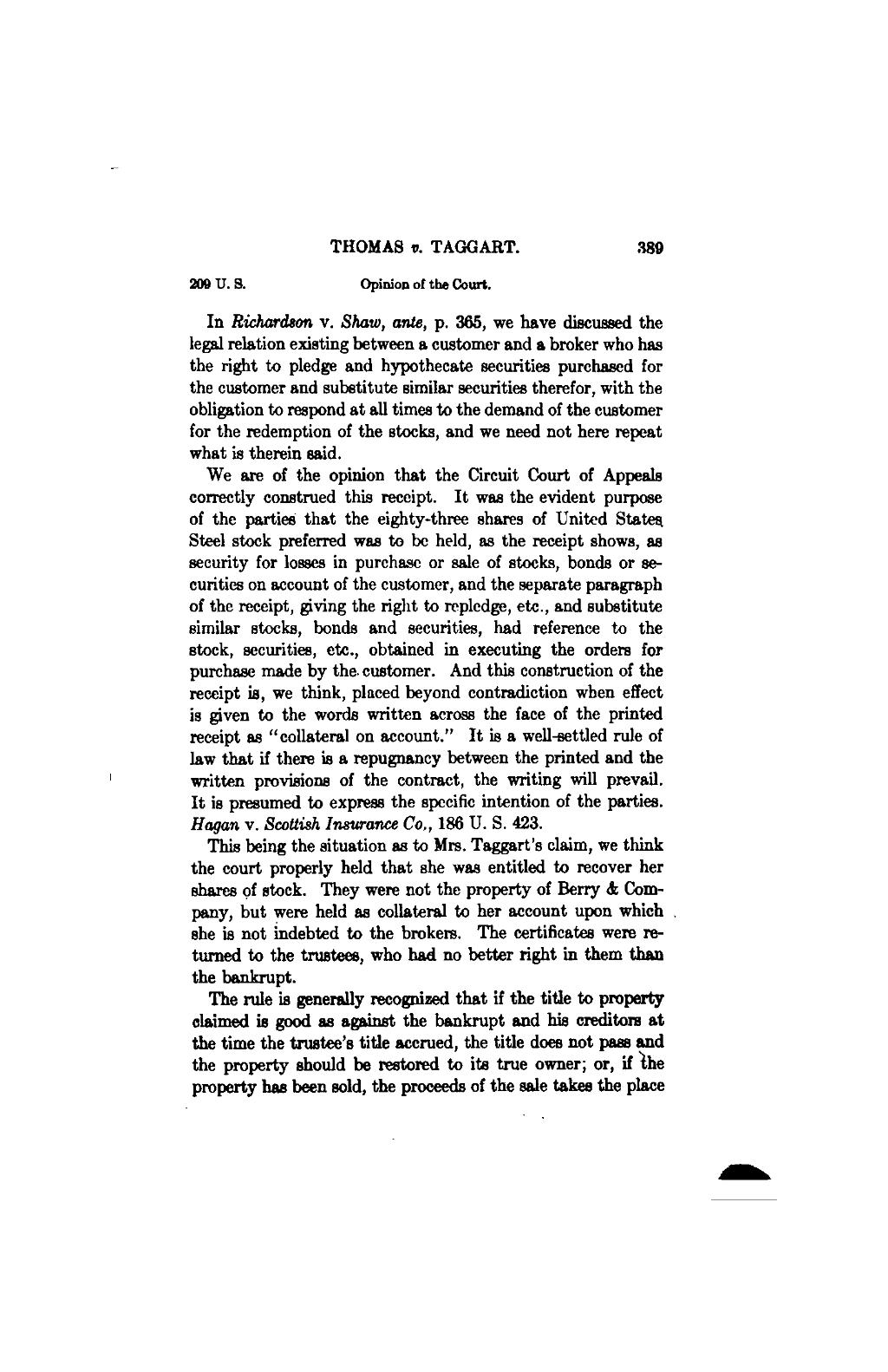209 U.S. Opinion of the Courk In R/chard,on v. Shaw, ant?, p. 365, we have discussed the legal relation existing between a customer and a broker who has the right to pledge and hypothecate securities purchased for the customer and substitute similar securities therefor, with the obligation to respond at all times to the demand of the customer for the redemption of the stocks, and we need not here repeat what is therein said. We are of the opinion that the Circuit Court of Appeals correctly construed this receipt. It was the evident purpo? of the parties that the eighty-three shares of United State? Steel stock preferred was to be held, as the receipt shows, as security for losses in purchase or sale of stocks, bonds or se- curities on account of the customer, and the separate paragraph of the receipt, giving the rigtit to repledge, etc., and subetitute similar stocks, bonds and securities, had reference to the stock, securities, etc., obtained in executing the orders for purchase made by the. customer. And this construction of the receipt is, we think, placed beyond contradiction when effect is given to the words written across the face of the printed receipt as "collateral on account." It is a well-settled rule of law that if there is a repugnancy between the printed and the written provisions of the contract, the writing will prevail It is presumed to express the specific intention of the parties. Hagan v. Scottish lru?urance Co., 186 U.S. 423. This being the situation as to Mrs. Taggart's claim, we think the court properly held that she was entitled to recover her shares Of stock. They were not the property of Berry & Com- pany, but were held as collateral to her account upon which she is not indebted to the brokers. The certificates were re- turned to the trustees, who had no better right in them than the b?,?rupt. The rule is generally recognized that if the title to property claimed is good as a?in?t the bankrupt and his creditors at the time the trnstee's title accrued, the title does not pass and the property should be redored to its true owner; or, ff ?be property has been sold, the proceeds of the sale takes the place
�
